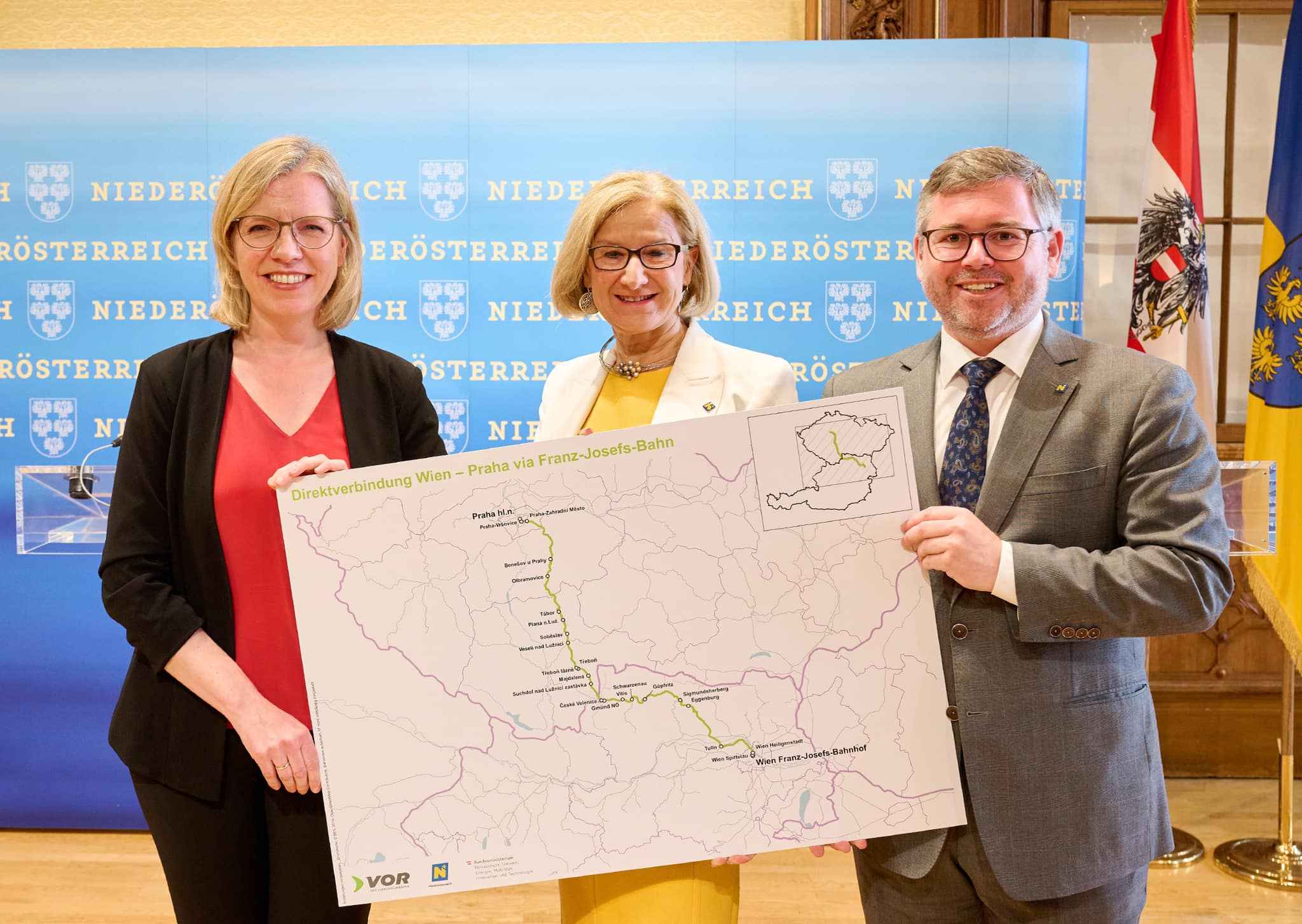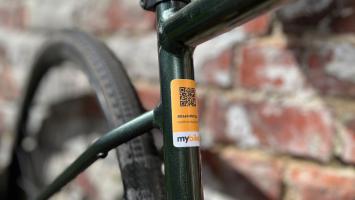Amsterdam bans creation of new hotels
Another piece in the overall strategy to reduce tourist flows to the city
 TheMayor.EU logo
TheMayor.EU logo The announcement came just as authorities presented their plan for a Vienna-Prague direct train route
Yesterday, the Austrian Federal Minister for Climate Action, Leonore Gewessler, and the Governor of the state of Lower Austria, Johanna Mikl-Leitner, announced that a direct train connection from Vienna to Prague will be available as soon as this December. The move is part of the rail revival, happening across Central Europe, as more and more countries are revising their cross-border passenger rail connections.
The new route will be called ‘Silva Nortica’ and will take a projected five hours. This connection could become part of the Vienna-Prague-Berlin line, pledged in 2021. The ‘Silva Nortica’ will pass through Lower Austria, showcasing the country’s vineyards and forests and cross the border at Gmünd.
According to Minister Gewessler, in shorter and mid-distance trips, passengers can take full advantage of the climate-friendly and cost-effective train and public transport services. However, cross-border train rides can be quite pricy, so to boost interest, she added that from 2023, cross-border train tickets will be exempt from a sales tax.

L-R: Minister for Climate Action, Leonore Gewessler,
Governor of the state of Lower Austria, Johanna Mikl-Leitner,
Source: Governor Johanna Mikl-Leitner on Facebook
The direct train line from Vienna to Prague will start operating again for the first time in 26 years. Furthermore, it will take advantage of the Franz-Josefs-Bahn infrastructure. The Franz-Josefs-Bahn was a piece of rail infrastructure connecting Vienna with Egar, located near Karlovy Vary in the Czech Republic. The line was constructed in the mid-19th century, during the reign of Emperor Franz Joseph I of the Austro-Hungarian Empire.
Similar developments have been sprouting across the European Union, as governments are embracing trains as a way to move goods and people sustainably. This includes projects like the Vienna-Brno direct line, the Luxembourg-Brussels fast train, as well as the Berlin-Szczecin line, which is supposed to reinvigorate rural communities in Brandenburg.
To a large extent, the train revival has been spurred on by the European Year of Rail in 2021, which set the target of doubling high-speed rail traffic by 2030 and tripling it by 2050. In fact, connecting large urban centres in the EU with rail would create a quasi-public transport system, according to Minister Gewessler, that would fuel suitable mobility across the bloc.

Silesian is spoken by about half a million people in the south of the country

Legislators and magnates have to await a preliminary ruling from the European Court of Justice

The building will then serve as the site for a new museum dedicated to Finnish-Russian relations

The tool helps identify undeclared swimming pools and garden sheds

It will serve as a virtual companion to the municipal network of libraries in the country

In addition, the federal government has launched the National Week of Action against Bicycle Theft to raise awareness of the issue and the new solution

The city thinks that it’s time to update pet-related street cleanliness rules for the 21st century

Experimenting with public transport provision in Germany is clearly in a state of creative fervour

Legislators and magnates have to await a preliminary ruling from the European Court of Justice

Silesian is spoken by about half a million people in the south of the country

The benefit will last until the Dutch parliament adopts the transgender law

Experimenting with public transport provision in Germany is clearly in a state of creative fervour

Urban dwellers across the EU are having a say in making their surroundings friendlier to people and the environment.

Forests in the EU can help green the European construction industry and bolster a continent-wide push for architectural improvements.

Apply by 10 November and do your part for the transformation of European public spaces

Catch up with some recommendations for the 2024 European Capital of Culture programme from the mayor of Tartu

An interview with the ICLEI regional director for Europe аfter the close of COP28

An interview with a member of the No Hate Speech Network team














